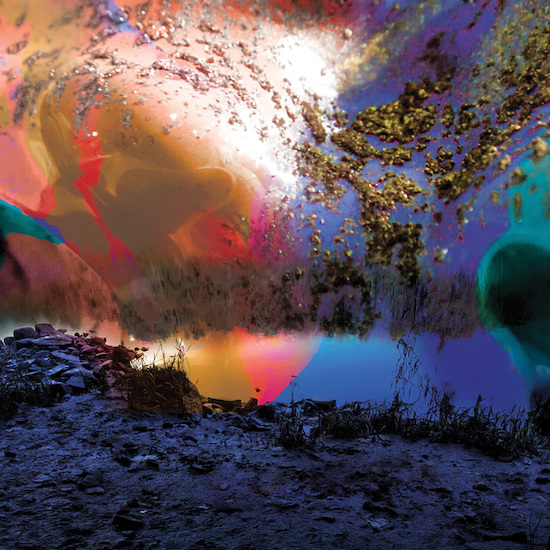If you ever owned a tape deck with a varispeed dial that you could scroll back and forth during playback, slurring and stretching cassingles of ‘Smooth Criminal’ and ‘Paradise City’ til the mechanism broke down and tangled up the unspooled tape into twisted knots requiring tense minutes of highwire back-of-a-pencil spooling and careful unsnarling, then Joe Snape’s Joyrobix may just provide you a sly Proustian jolt. According to the PR bumf, the ten short tracks that make up the Berlin-by-way-of-Birmingham composer’s third release on Slip started life three years ago as a series of short pieces for chamber ensemble, toured live, recorded, and then remixed. But practically any trace of those original instrumentals has now been thoroughly warped beyond recognition. The tape has unspooled. It is knotted and creased, chewed to oblivion. The sound, delirious.
Label, Slip Imprint, is now nine years-old but it still feels somehow like the impish young upstart in the world of experimental composition. Since its launch, with a carefully packaged disc by Points of Light, the label danced nimbly between sweatshirt classical of Oliver Coates and Mica Levi, the bracing electronic noise of Yeah You and Bad@Maths, and all of the weirdest, glitchiest points in-between. Always immaculately packaged and – at least in recent years – expertly mastered by the likes of Giuseppe Ielasi (of Milan’s Senufo Editions), Stephen Bishop (Oval Tapes), and Joe Talia. It represents that rare case where the word ‘curated’ does not seem intemperate.
Joyrobix sits squarely in the centre of Slip’s sphere of interest. It nestles comfortably between the bruised earworms of Competition’s You Turned Into A Painting, the hysterical epic theatre of Object Collection’s It’s All True, and the digitally-accelerated orchestral psychedelia of Chaines’ The King. There is a touch of Goodiepal’s classic electronica album Narc Beacon and a hint of the gleefully post-internet conceptual composition of Jennifer Walshe, even a flavour of the lo-fi electro-unpop of Lucky Dragons and Anticon co-founder, Why? It is also nothing like any of these things and very, very singularly itself. Goofy, melancholy, irreverent, fun.


